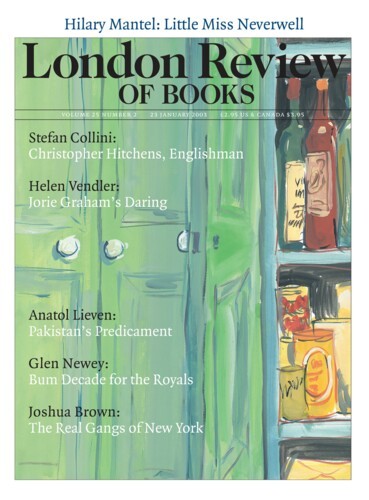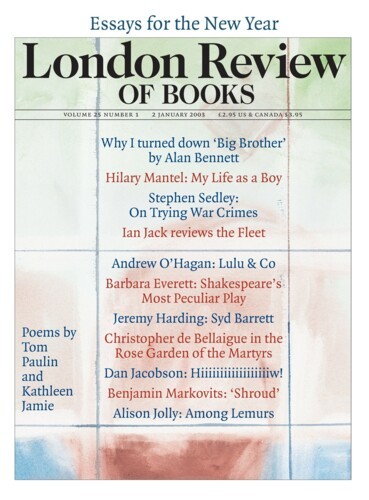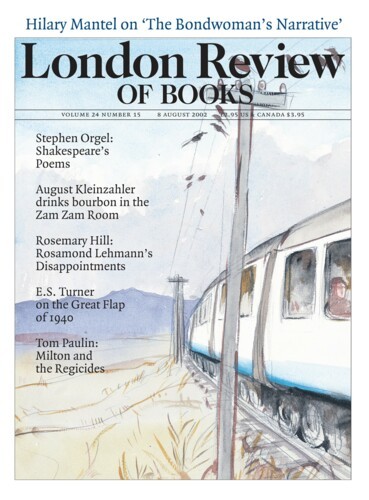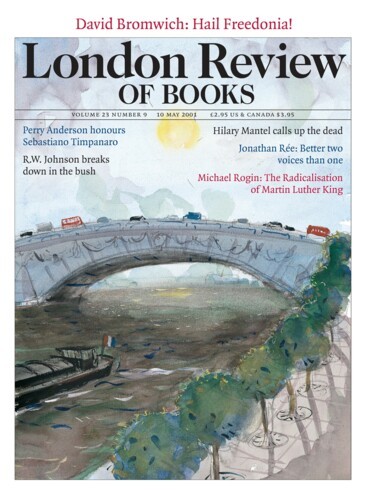Little Miss Neverwell: her memoir continued
Hilary Mantel, 23 January 2003
By the time I was twenty I was living in a slum house in Sheffield. I had a husband and no money; those things I could explain. I had a pain which I could not explain; it seemed to wander about my body, nibbling here, stabbing there, flitting every time I tried to put my finger on it.
When I packed my bags for London, at 18 years old, I went to live in a women’s hall of residence in...




